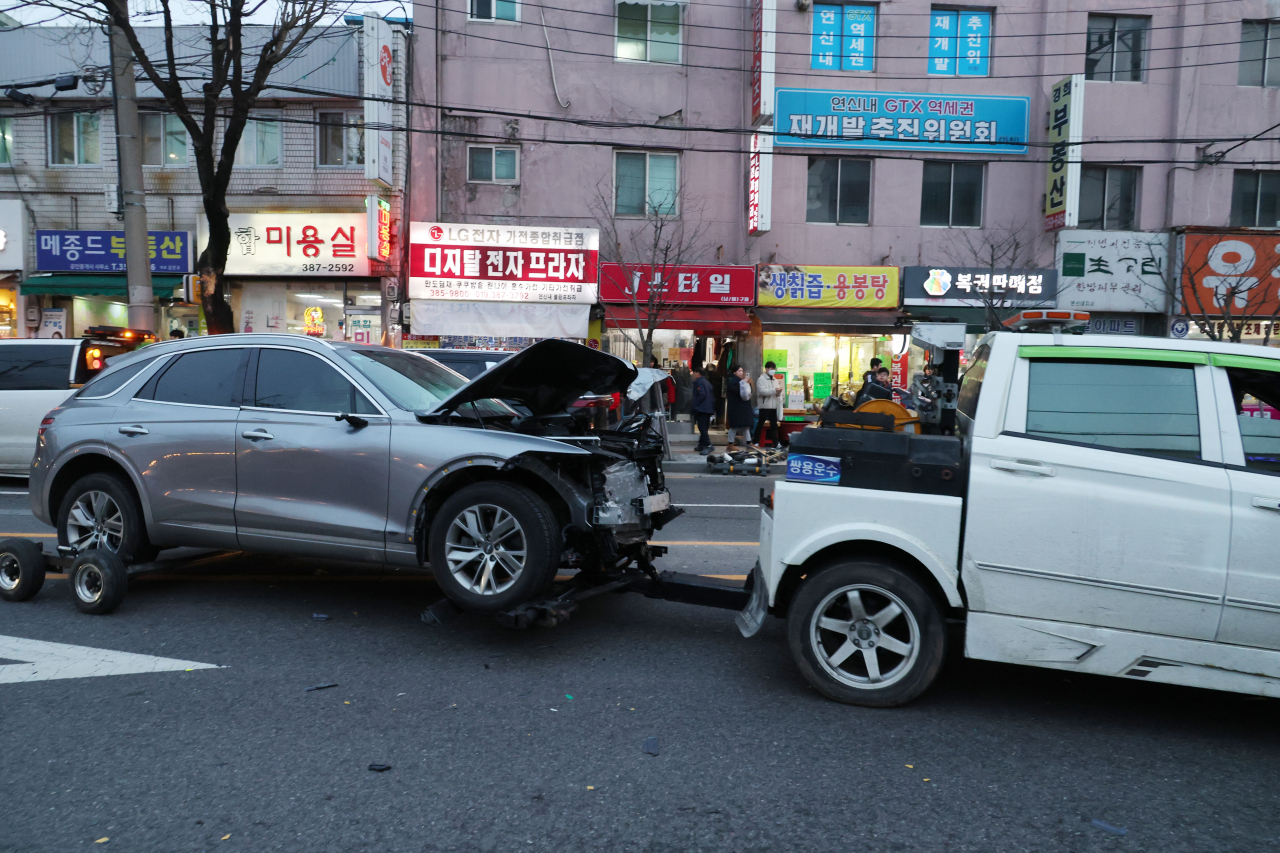 |
Scene of a deadly crash that killed or injured 14 people in northern Seoul's Eunpyeong district on Feb. 29. The driver claimed sudden acceleration caused the incident, adding to a series of similar cases under investigation nationwide. (Newsis) |
Cars accelerating out of a driver’s control is a common fear among South Korean drivers, with suspected cases frequently highlighted in the local media.
However, a forensic analysis of 364 alleged incidents found no cases with sufficient evidence to confirm sudden unintended accelerations had occurred. In all 321 cases where analysis was possible, drivers had pressed the accelerator – contrary to their claims of hitting the brake.
In its report Wednesday, the National Forensic Service, the government's forensics arm, shared its review of the suspected SUA cases from 2020 through this year. It concluded that there were zero confirmed instances of SUA in all investigated cases, aside from 43 cases where the vehicles were too damaged for complete analysis.
To analyze, the NFS officials examined event data recorders – essentially a car's "black box" – which track everything from vehicle speed to brake application, throttle position and steering angle down to the millisecond. These tamper-proof devices give precise data about what happens in the moments before a crash and are now widely accepted as evidence in courts worldwide, including the United States.
The NFS backed up its findings with physical evidence as well.
In a high-profile car crash near Seoul City Hall which left nine pedestrians dead and four injured, NFS analysis found marks from the gas pedal on the driver's shoe sole, which contradicted his claims that he had applied brakes but the vehicle malfunctioned.
With this evidence, the Seoul Central District Court issued an arrest warrant. The driver now faces involuntary manslaughter charges.
"The scientific truth of so-called SUAs is simple – drivers are pressing the gas instead of the brake in moments of panic," an NFS official told local media. "When you suspect your car's having this issue, the first thing to do is to get your foot off the pedal."







![[Today’s K-pop] Blackpink’s Jennie, Lisa invited to Coachella as solo acts](http://res.heraldm.com/phpwas/restmb_idxmake.php?idx=644&simg=/content/image/2024/11/21/20241121050099_0.jpg)